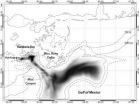(Press-News.org) A new UBC study reveals that corporate leaders are victims of herd mentality when adopting new innovations, sometimes with deadly consequences.
The paper, by Sauder School of Business Associate Professor Marc-David L. Seidel and INSEAD Professor Henrich R. Greve, shows leaders tend to pursue innovations, even as complex as airplanes, based on early adoption by competitors not close scrutiny of the technical merits.
"Business leaders tend to panic when new innovations are about to hit the market. They scramble to buy an apparent early leader," says Seidel. "Sometimes this results in inferior products, but as we show in our study, in the airline industry there was loss of life."
Among a series of innovations, the authors focused on two almost identical aircraft produced in the 1970s – the McDonnell Douglas DC-10 and Lockheed L-1011. Dubbed "The Twins," their manufacturers were locked in bitter rivalry.
Component delays slowed the L-1011's entry into the market by a year. Lack of sales characterized it as a failed innovation with only 250 sold compared to 486 DC-10s.
But the DC-10 suffered design flaws that proved deadly, killing over 600 people in a number of crashes. In 1979, it was temporarily grounded by the Federal Aviation Administration but this did not stop its advance.
In the paper, Seidel and Greve warn there is potential for history to repeat itself as Boeing's 787 Dreamliner and its rival the Airbus A350 head to market.
Early groundings and production delays of the Dreamliner resulted in airlines snapping up more of the rival Airbus before it had completed flight testing or carried passengers.
"We can't say the bias to purchase the Airbus will result in negative events," says Seidel. "We won't know if mistakes are being made for some time. But I can say the lesson of history should be guiding current practice."
INFORMATION:
BACKGROUND
To arrive at the conclusions of the study, Seidel and Greve analysed the complete manufacturing history of both the DC-10 and L-1011 airplanes, their sales patterns, abandonments and data on airline customers.
The study The Thin Red Line between Success and Failure: Path Dependence in the Diffusion of Innovative Production Technologies, was co-authored by Sauder School of Business Associate Professor Marc-David L. Seidel and Professor Henrich R. Greve of INSEAD. It was published on January 15 in the Strategic Management Journal.
For a copy of the study or to book an interview with Marc-David Seidel, please contact:
Bethan Williams
Communications Specialist
Sauder School of Business
University of British Columbia
T: 604-822-5273
E: Bethan.williams@sauder.ubc.ca
Sauder research shows why innovation takes a nosedive
A new UBC study reveals that corporate leaders are victims of herd mentality when adopting new innovations, sometimes with deadly consequences
2014-03-18
ELSE PRESS RELEASES FROM THIS DATE:
Stanford researchers survey protein family that helps the brain form synapses
2014-03-18
Neuroscientists and bioengineers at Stanford are working together to solve a mystery: how does nature construct the different types of synapses that connect neurons -- the brain cells that monitor nerve impulses, control muscles and form thoughts.
In a paper published in the Proceedings of the National Academy of Sciences, Thomas C. Südhof, M.D., a professor of molecular and cellular physiology, and Stephen R. Quake, a professor of bioengineering, describe the diversity of the neurexin family of proteins.
Neurexins help to create the synapses that connect neurons. Think ...
TGen-led study spotlights dog DNA role in developing new therapies for human cancers
2014-03-18
PHOENIX, Ariz. — March 17, 2014 — Using genomic analysis to study cancer in dogs can help develop new therapies for humans with cancer, according to a proof-of-concept study led by the National Cancer Institute (NCI) and the Translational Genomics Research Institute (TGen).
Pure-breed dogs, whose genetics have been standardized by hundreds of years of human intervention, provide highly predictable genetic models useful in designing clinical trials, in which specific drugs are matched to the molecular profiles of human patients, according to the study published today in ...
Kessler Foundation researchers link body temperature to relapsing-remitting MS and fatigue
2014-03-18
West Orange, NJ. March 18, 2014. Kessler Foundation researchers have demonstrated for the first time ever that body temperature is elevated endogenously in relapsing-remitting multiple sclerosis (RRMS) and linked to worse fatigue. The article was published ahead of print on Feb. 21, 2014 in Archives of Physical Medicine & Rehabilitation. Sumowski J, Leavitt V: Body temperature is elevated and linked to fatigue in relapsing-remitting multiple sclerosis, even without heat exposure. doi:10.1016/j.apmr.2014.02.004.
Researchers measured body temperature in 50 patients with ...
NIST chips help BICEP2 telescope find direct evidence of origin of the universe
2014-03-18
The view back in time—way back to the origins of the universe—just got clearer. Much clearer.
A team of U.S. cosmologists using the BICEP2 telescope at the South Pole announced this week that they have discovered the first direct evidence of the rapid inflation of the universe at the dawn of time, thanks in part to technology developed and built by the National Institute of Standards and Technology (NIST).
The BICEP2 camera relies, in part, on the extraordinary signal amplification made possible by NIST's superconducting quantum interference devices (SQUIDs).
The ...
NRL models Deepwater Horizon oil spill
2014-03-18
Dr. Jason Jolliff is an oceanographer with the U.S. Naval Research Laboratory (NRL). "The emphasis here," he says, "is on developing models of the ocean environment to help the naval warfighter." His most recent paper, published in Ocean Modeling (March 2014), shows NRL can also forecast where oil will go following a major spill.
"If you're going to do forecasting," he says, "you have to get the ocean circulation correct. It's fundamental to all else." Jolliff plugged the distribution of surface oil following the 2010 Deepwater Horizon oil spill—when it was still well ...
Canadian drinking-age laws have significant effect on deaths among young males
2014-03-18
A recent study by a University of Northern British Columbia-based scientist associated with the UBC Faculty of Medicine and UNBC's Northern Medical Program demonstrates that Canada's drinking-age laws have a significant effect on youth mortality.
The study was published yesterday in the international journal Drug and Alcohol Dependence. In it, Dr. Russell Callaghan writes that when compared to Canadian males slightly younger than the minimum legal drinking age, young men who are just older than the drinking age have significant and abrupt increases in mortality, especially ...
Global food trade can alleviate water scarcity
2014-03-18
Trading food involves the trade of virtually embedded water used for production, and the amount of that water depends heavily on the climatic conditions in the production region: It takes, for instance, 2.700 liters of water to produce 1 kilo of cereals in Morocco, while the same kilo produced in Germany uses up only 520 liters. Analyzing the impact of trade on local water scarcity, our scientists found that it is not the amount of water used that counts most, but the origin of the water. While parts of India or the Middle East alleviate their water scarcity through importing ...
Using big data to identify triple-negative breast, oropharyngeal, and lung cancers
2014-03-18
Researchers at Case Western Reserve University and colleagues used "big data" analytics to predict if a patient is suffering from aggressive triple-negative breast cancer, slower-moving cancers or non-cancerous lesions with 95 percent accuracy.
If the tiny patterns they found in magnetic resonance images prove consistent in further studies, the technique may enable doctors to use an MRI scan to diagnose more aggressive cancers earlier and fast track these patients for therapy. Their work is published online in the journal Radiology at http://pubs.rsna.org/doi/full/10.1148/radiol.14131384. ...
Strongest evidence yet of 2 distinct human cognitive systems
2014-03-18
BUFFALO. N.Y. — Cognitive scientists may have produced the strongest evidence yet that humans have separate and distinct cognitive systems with which they can categorize, classify, and conceptualize their worlds.
"Our finding that there are distinct, discrete systems has implications for the fields of child development and cognitive aging," says lead researcher, cognitive psychologist J. David Smith, PhD, of the University at Buffalo.
"These distinct systems may have different developmental courses as the cortex matures," he says, "meaning that children may categorize ...
Ipilimumab in advanced melanoma: Added benefit for non-pretreated patients not proven
2014-03-18
The German Institute for Quality and Efficiency in Health Care (IQWiG) already assessed the added benefit of ipilimumab in advanced melanoma in 2012. A considerable added benefit was found for patients who had already received previous treatment. In the new dossier compiled by the drug manufacturer, the drug was now compared with the appropriate comparator therapy dacarbazine specified by the Federal Joint Committee (G-BA) also for non-pretreated patients.
Again, the manufacturer claimed a noticeable gain in survival time and thus an added benefit. This time, IQWiG did ...
LAST 30 PRESS RELEASES:
Blood test predicts which bladder cancer patients may safely skip surgery
Kennesaw State's Vijay Anand honored as National Academy of Inventors Senior Member
Recovery from whaling reveals the role of age in Humpback reproduction
Can the canny tick help prevent disease like MS and cancer?
Newcomer children show lower rates of emergency department use for non‑urgent conditions, study finds
Cognitive and neuropsychiatric function in former American football players
From trash to climate tech: rubber gloves find new life as carbon capturers materials
A step towards needed treatments for hantaviruses in new molecular map
Boys are more motivated, while girls are more compassionate?
Study identifies opposing roles for IL6 and IL6R in long-term mortality
AI accurately spots medical disorder from privacy-conscious hand images
Transient Pauli blocking for broadband ultrafast optical switching
Political polarization can spur CO2 emissions, stymie climate action
Researchers develop new strategy for improving inverted perovskite solar cells
Yes! The role of YAP and CTGF as potential therapeutic targets for preventing severe liver disease
Pancreatic cancer may begin hiding from the immune system earlier than we thought
Robotic wing inspired by nature delivers leap in underwater stability
A clinical reveals that aniridia causes a progressive loss of corneal sensitivity
Fossil amber reveals the secret lives of Cretaceous ants
Predicting extreme rainfall through novel spatial modeling
The Lancet: First-ever in-utero stem cell therapy for fetal spina bifida repair is safe, study finds
Nanoplastics can interact with Salmonella to affect food safety, study shows
Eric Moore, M.D., elected to Mayo Clinic Board of Trustees
NYU named “research powerhouse” in new analysis
New polymer materials may offer breakthrough solution for hard-to-remove PFAS in water
Biochar can either curb or boost greenhouse gas emissions depending on soil conditions, new study finds
Nanobiochar emerges as a next generation solution for cleaner water, healthier soils, and resilient ecosystems
Study finds more parents saying ‘No’ to vitamin K, putting babies’ brains at risk
Scientists develop new gut health measure that tracks disease
Rice gene discovery could cut fertiliser use while protecting yields
[Press-News.org] Sauder research shows why innovation takes a nosediveA new UBC study reveals that corporate leaders are victims of herd mentality when adopting new innovations, sometimes with deadly consequences






